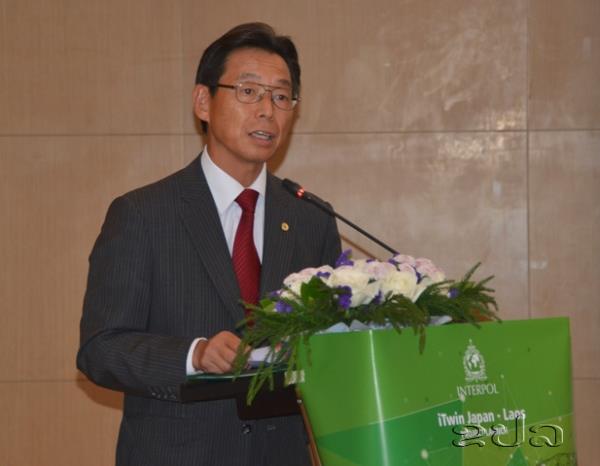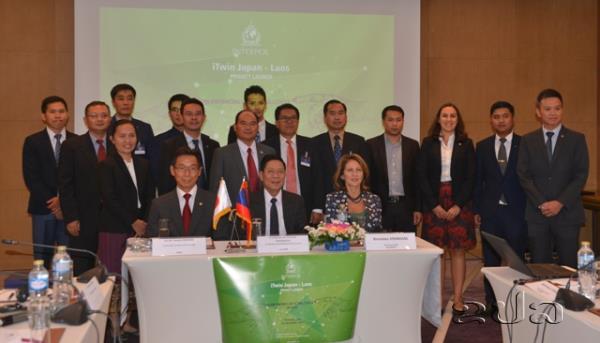KPL
(KPL) The iTWIN-JAPAN/LAOS Project, which aims to strengthen the capacity of law enforcement and border security agencies, was launched by INTERPOL on Thursday.

(KPL) The iTWIN-JAPAN/LAOS Project, which aims to strengthen the capacity of law enforcement and border security agencies, was launched by INTERPOL on Thursday.
The project opening recently took place in Vientiane in the attendance of Maj. Gen. Somvang Thammasith, Vice Minister of Public Security,Ms. Roraima Andriani, Director, Global Outreach and Regional Support Directorate of INTERPOL, and Mr. Takeshi Hikihara, Ambassador of Japan to the Lao PDR, as well as officers from related ministries of the Lao PDR and INTERPOL.

The project aims to significantly enhance INTERPOL’s Global Police Secure Communications System, the I-24/7, connectivity within Laos to prevent and fight against transnational crimes including terrorism by the systematic screening of passengers and travel documents at border crossing points, through improved access to INTERPOL’s databases on suspected criminals, wanted people and stolen or lost travel documents, via the I-24/7.
The approximately US$700,000 a year project, is financially supported by the government of Japan and will provide equipment and training to border security agencies, particularly immigration officers.
It is expected that the project will enhance Laos’ capability to prevent and fight against transnational crimes more effectively.
At the project opening, Maj. Gen. Somvang Thammasith expressed his gratitude to the Government of Japan for the financial assistance to support the implementation of the project.
Ambassador welcomed the launch of the project and expressed his appreciation to all officers in charge of the implementation of the project.

“Recently, the threat of terrorism in the Middle East and Africa is spreading to Asia. In response to this growing threat, the Government of Japan aims to play a leading role in helping to stabilise the situation, by mobilising all available means,” said the Ambassador, adding that effective border control in Laos is one of the key elements in ensuring security and peace not only in this country, but also throughout the entire Mekong River Delta. I’m confident that the project will contribute towards to enhancing Laos’ capability to fight against transnational crimes, including terrorism, more effectively.
Ms. Roraima also stressed the importance of enhancement to INTERPOL’s Global Police Secure Communications System.

She went on to say that “There are 80 million records in INTERPOL’s databases. When it comes to terrorists or transnational organised crime networks operating across borders, it is absolutely imperative that the right information is in the hands of the right officer at the right time.”
KPL